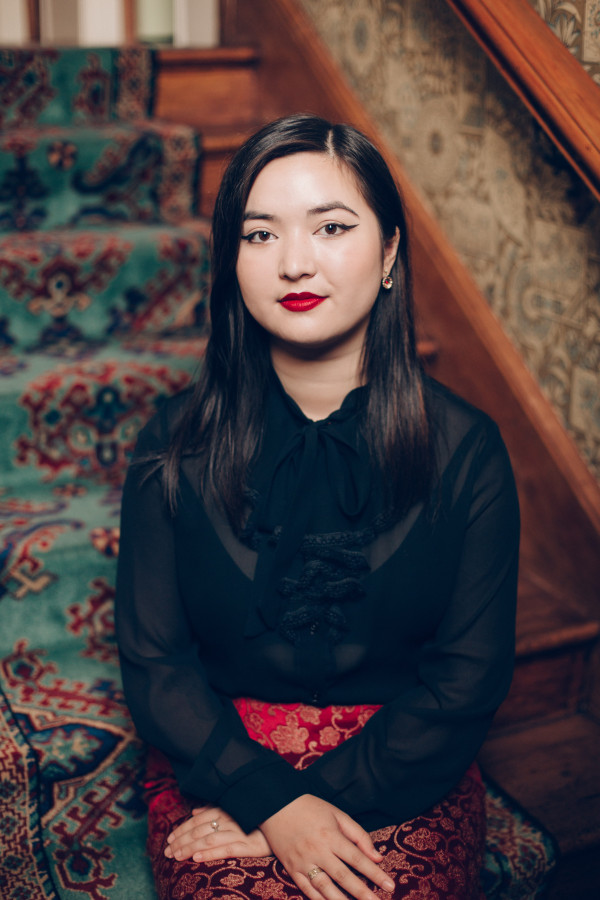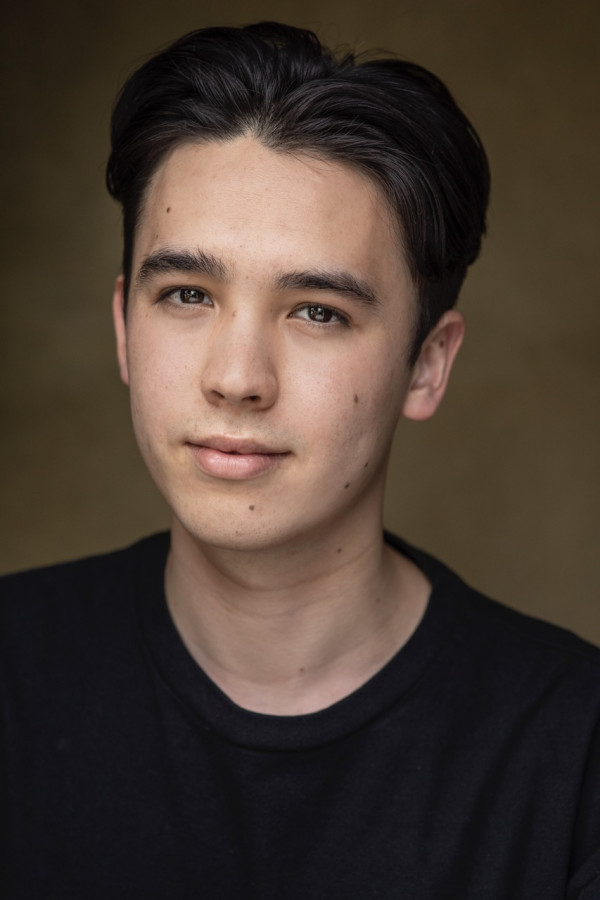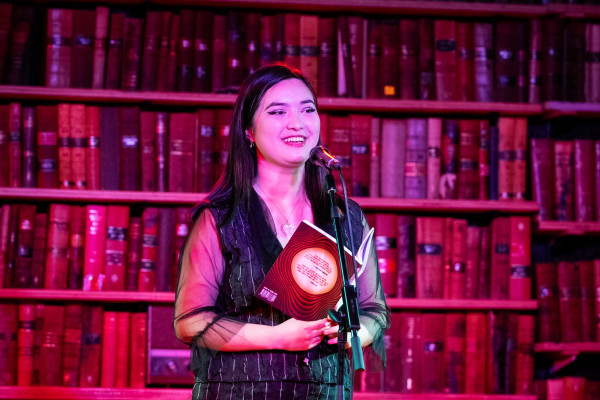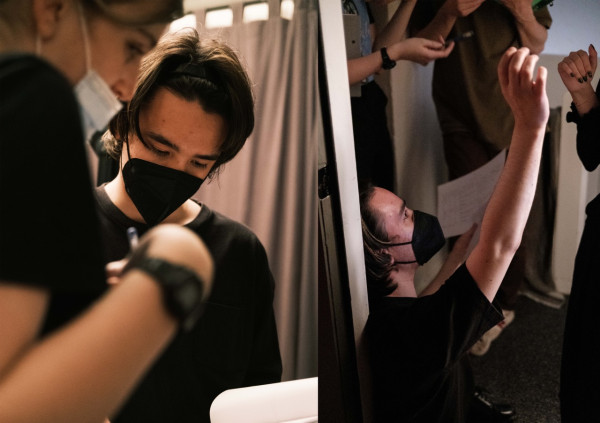Interest in art created by Asian New Zealanders has doubled in the last decade, according to research from Creative New Zealand. We spoke to two artists about how their identities tie into their work.
Cadence Chung and Jake Tabata are two young, queer Asian artists from Aotearoa.
Cadence is a 20-year-old student doing a Bachelor of Music majoring in Classical Voice at Victoria University of Wellington. She’s a classical singer, playwright, poet and composer.
Jake is a 25-year-old writer, director and actor working across theatre, film and television.
Re: News journalist Janhavi Gosavi spoke to both of them about being young, queer Asian artists and the shows they’re working on.
Janhavi: Tell me about the show you’re working on.
Cadence: My show is called Hector. It's quite a short play and it only has two characters.
There's Hector Wong, who is a Chinese Wellingtonian, and there's Hector Berlioz, who is a real historical figure. He was a 19th century composer.
The two end up stuck in a room together and they sort of loosely traverse through their lives and try and find some similarities between them.
It delves a lot into Asian identity and racism in Aotearoa.

Cadence Chung. Photo: Ebony Lamb Photography.
Jake: The series is a four-part queer horror web series. It's called The Creature.
The story follows Aidan, who is a young, queer man who's endlessly swiping on these apps with no results.
One day he matches with his dream man but in order to meet his date, he'll have to face this strange, perturbed creature that lurks in the shadows of his home.
It addresses some of those challenges, like the toxicity of that environment, the loneliness, the worthlessness that you can feel there.

Jake Tabata. Photo: Andi Crown Photography.
Janhavi: Why did you incorporate your own personal experiences into your art?
Cadence: Hector Wong, the character, is kind of like a Chinese everyman.
I come from such hardworking people who had to suffer so much racism and poverty in those early days.
That attitude often carries on, even in the current generations… Feeling like you always need to work really hard, feeling like you have to be the perfect immigrant.
I wanted to try and portray this Hector Wong character as someone who really feels history pressing on him, as a lot of us do.
There's one bit… The two are chatting and Hector Berlioz says “Oh, you're basically white”, like, “you're just like one of us”.
All these sorts of things that I think are really relatable to a lot of Asian New Zealanders.
Jake: The Creature is loosely based on my own personal experiences with online dating as a young, queer man.
I felt quite alone, really struggling with all the challenges I see with online dating and romance anxiety.
The first time I was putting it in front of people, I was like “Are people going to get it?”
But I was surrounded by a lot of young, queer men who are telling me similar experiences and how much they related to it. So that was really beautiful.
Being mixed race specifically is quite challenging.
[It’s] a constant thing of your identity being invalidated, people not being able to really understand you… saying that you’re less than, or you're half of something.
Janhavi: How does your Asian identity inform your art?
Jake: My focus is immediately stories about intersections of identity — the grey area of humans. When we talk about good versus evil characters, I like focusing on the grey.
[Aidan] is quite a soft and gentle character. His Asianness is almost a given.
That was really important for me to be like, he's an Asian character, but it's not like we're gonna tackle his Asianness.
I wanted Asian representation, but I don't think every time we see an Asian story, we have to go hugely deep into it.
Cadence: It's just something very intrinsic… Something you think about a lot and also don't think about it all.
A lot of this play talks about what it is like growing up feeling totally foreign and all these tiny little micro interactions that really shape this concept of you feeling like an outsider.
My family's been here for over 100 years and still I'm often asked “Oh, where are you from?”
I've been told “your English is really good”. There's still a lot of feelings that Asian New Zealanders are really exotic.
I'm Chinese and Chinese gold miners were here from the 1840s. I hope people think a bit more about these histories that are often ignored and recognise that we've been very multicultural right from the very beginning.

Cadence Chung performing poetry. Photo: Rebecca McMillan Photography.
Janhavi: How does being queer inform your work?
Jake: A big part is which stories do I wanna tell? Because of the lack of representation growing up.
I haven't really seen much about queer online dating. I really wanna explore insecure, soft, effeminate men.
If you only have one stereotype to represent a whole community, then that's really challenging. But I want to create newer stereotypes.
Cadence: I love how limitless ‘queer’ is. That's a really amazing feeling to bring into your art.

Jake Tabata working on the set of The Creature. Photo: supplied.
Janhavi: How do you financially support yourselves and your projects?
Cadence: I currently present to RNZ on the concert radio… I also teach music. So those are my little day gigs.
I work like maybe 12 to 20 hours a week and that would give me maybe $400 to $600.
My student loan pays my fees at the moment. I'm also very lucky to be living at home at the moment.
And then I've been really lucky to receive funding from the Council, from the Tung Jung Association… And some scholarships as well.
Getting funding to put on a project… There's a lot of filling in very tedious forms, there's a lot of begging and funding applications.
Jake: I have a stable permanent part time job that supports the work that I do.
I work, like, 20 hours a week, that's probably around $500 to $600 a week. If I wasn't living at home, I would have to work more.
In the film and TV and screen industry, there is quite a lack of funding and it has decreased as well, unfortunately.
We did a Boosted campaign… We raised about $9000 for the project, so still quite a small micro budget project.
It is a little bit more challenging because you're asking your friends and your family.
It puts you at the front of asking for money, and that was a new experience.
Janhavi: Do you define yourself as young, queer artists of Asian descent? Or is that not something that you choose to identify as?
Jake: Currently I'm feeling quite empowered by talking about myself as a mixed race, Japanese-Pākehā queer creative.
Queerness is a challenge as well, like growing up, being really insecure and not being out. So for me it's really important to reclaim that.
Cadence: My identity informs all aspects of my life.
I am mixed race Pākehā-Chinese and queer. But I wouldn't want it to be the only thing that people take away from my art.
I would hate for people to read my work or watch my pieces and just think “I'm just supporting the representation”.
These things inform my work but they don't define it.
This interview has been edited for length and clarity.
More stories:
How the proposed sick leave changes could impact you
The Government is proposing changes to the Holidays Act.
How non-Māori learning te reo helps revitalise it
“I am opposed to the idea that only Māori should be part of the revitalisation.”
The ins and outs of sex etiquette in a flat
It can be a sticky situation.